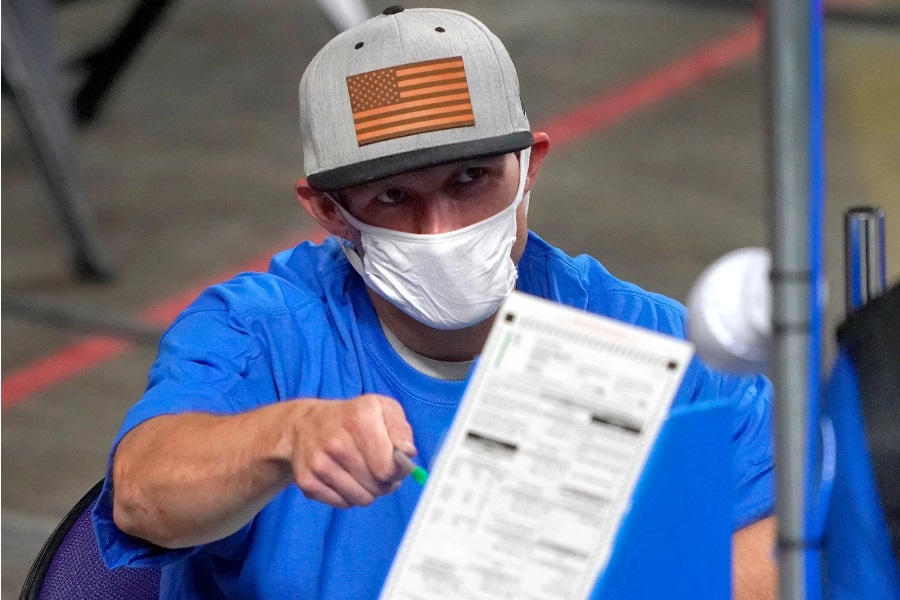Arizona Republican senate leaders are doing their best to prevent transparency when it comes to their communications with the right-wing conspiracy-promoting Cyber Ninjas.
The Arizona Senate is fighting to keep secret nearly 3,000 emails and text messages sent by lawmakers and others that relate to the Maricopa County election audit.
The Senate turned over thousands of pages of communications on Tuesday after ordered to do so by two judges.
But the Senate also provided a log of approximately 2,900 messages that were withheld or redacted because the Senate does not believe turning them over is required under the state Public Records Law.
Among those are most, if not all, of the communications between lawmakers who ordered the unprecedented election audit and Cyber Ninjas, the Florida company hired to conduct the audit.
“Our view of the legislative privilege, and I can tell you for decades the Legislature’s view of legislative privilege, is that when there are internal communications between legislators or their agents about legislative business, those are subject to legislative privilege,” Senate lawyer Kory Langhofer said during a court conference Wednesday.
That means the Senate will fight to prevent the disclosure of anything Senate President Karen Fann or other Republicans who ordered the audit have written to Cyber Ninjas or the various subcontractors on the audit.
Langhofer has previously argued, unsuccessfully, that Cyber Ninjas and the other contractors are not public officials and therefore not subject to the Public Records Law, which makes nearly all communications among elected officials public documents in Arizona.
But two Superior Court judges and an Appeals Court panel have said the contractors records are subject to the Public Records Law, and the Arizona Supreme Court is listening to the Senate’s appeal of those decisions.
Now, Langhofer is arguing that the records should remain private because of “legislative privilege,” which would mean they are protected from such disclosure.
“After all, the entire premise of this case is the vendor is functioning as the Legislature,” Langhofer said. “If we are going to treat the vendor as a Legislature, then its communications with the Legislature are part of the legislative privilege.”
American Oversight, the left-leaning group that sued the Arizona Senate for records from the election audit, will challenge many of the documents the Senate has not turned over, said the group’s attorney, Roopali Desai.
She said the group substantially disagrees with the Senate’s claims that so many of the records can be withheld.
“Of course we disagree with that and I think getting that teed up before this court sooner rather than later is important,” Desai said.
Judge Michael Kemp asked Langhofer when the Cyber Ninja’s preliminary report on the audit would go to the Senate and whether the Senate would seek to protect that from disclosure through legislative privilege as well.
Fann announced last week that the preliminary report was delayed because Cyber Ninjas CEO Doug Logan and two other members of his team contracted serious cases of COVID-19.
Langhofer said the preliminary report is expected to come in three volumes, and one volume is not written yet. He said it will be “at least two weeks” before a final report is produced.
“I have a feeling there will be some substantial disagreements over whether documents are privileged or not,” Kemp said.
Kemp suggested the court may need a “special master” for the case. That normally is another official appointed to individually review the records in question and recommend to the judge whether to release them.
Langhofer said the Senate will oppose any request to have documents reviewed in such a way without an “adequate showing” as to why American Oversight thinks the document is not subject to legislative privilege.
This article appears in the Arizona Republic.
